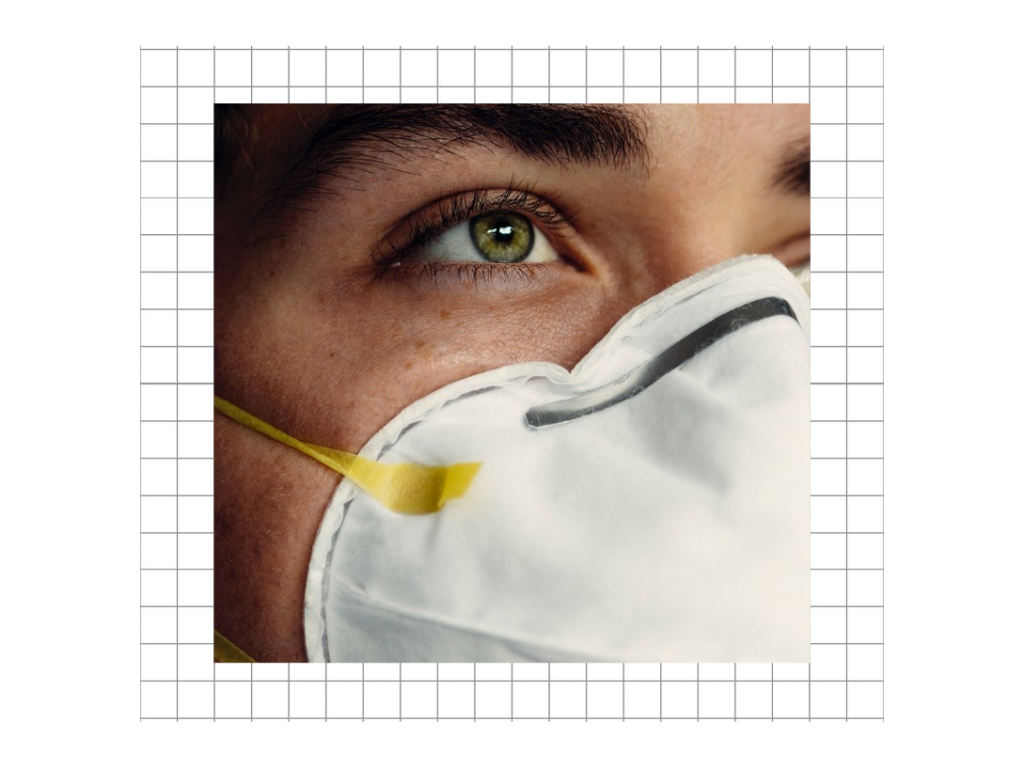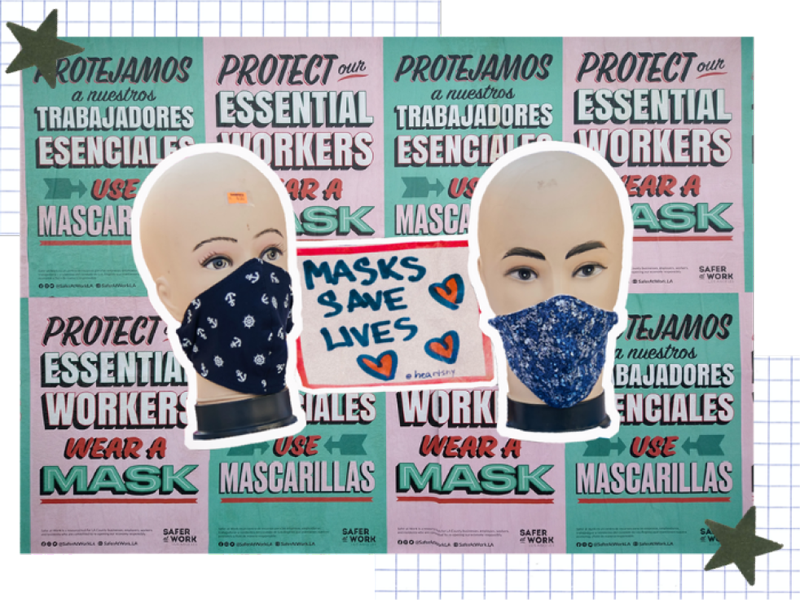Over the last year, facemasks have taken on a number of roles in the public imagination; from an important protective measure to a symbol of an ever-growing cultural war.
With lockdown rules lifted and people spending less time indoors, we understand that changing your approach to masks probably isn’t a high priority right now. But after the pandemic, people may be more wary of catching things on their daily commute, so masks could continue to be a valued commodity in the future.
For now, we all still need to wear them… But what you wear matters. For many companies, they are simply a cheap disposable commodity to be bundled in with fast fashion hauls. To help you make the right choice, check out our handy list of rules for eco-friendly face masks.
Reusable only
All too often in our day-to-day life or in pictures on social media we’ve seen pics of disposable blue surgical masks being tossed onto the ground. That’s why you should go for breathable, washable, reusable cloth masks. Unless you’re working in a sterile environment, there’s no need to burn through disposables: reusables should get you through any commute or trip to the shops.
While reusability is obviously important from an eco-friendly perspective, we can’t ignore the most important aspect of masks in general, how protective are they?
Protect yourself!
The main dilemma for many is reusability versus protection. Many consider the N95 surgical mask as the golden standard for preventing infection. The problem is that the N95 operates on single-use filters. A Cambridge University study found that the N95 could filter 53% of small particles, but masks made from fabrics like wool or cotton scored below 40%. This divide might not have a solution but we do have some advice, tougher fabrics like denim provide additional protection and it is advised to use two layers of fabric in a mask. If you feel you need the additional protection offered by the N95 or surgical masks, be sure to dispose of them properly.

Materials matter
Now that we’ve ruled out disposable masks, what materials should you look for in reusable ones? Just as there are seemingly endless groups manufacturing masks, there are numerous materials that can be used in making cloth-like masks. We recommend masks made from sustainable and biodegradable materials like organic cotton and hemp, like these masks from Thought Clothing, made from hemp with an organic cotton lining.
Other companies make masks from recycled materials, like these masks from Wearth, made from recycled ocean plastics, and ethically manufactured in Europe.
Made with care
As anyone in government will tell you, it can be hard to keep track of where these masks come from. There’s been no shortage of clothing giants jumping in on the manufacturing of masks, including Adidas whose mask was one of their “most rapidly produced products.” Keeping ethical manufacturing in mind, we’d say it’s best to either avoid the mass-production giants and look for local makers and sellers of masks, or buy from companies that are transparent in their manufacturing process.
Make your own
Homemade masks have been a trend over the last year. Some patterns are so easy everyone can take a shot at making and altering pieces themselves. If you don’t want to get crafty, check out sites like Etsy for homemade, sustainable masks, like this floral mask from Littlestorey.

